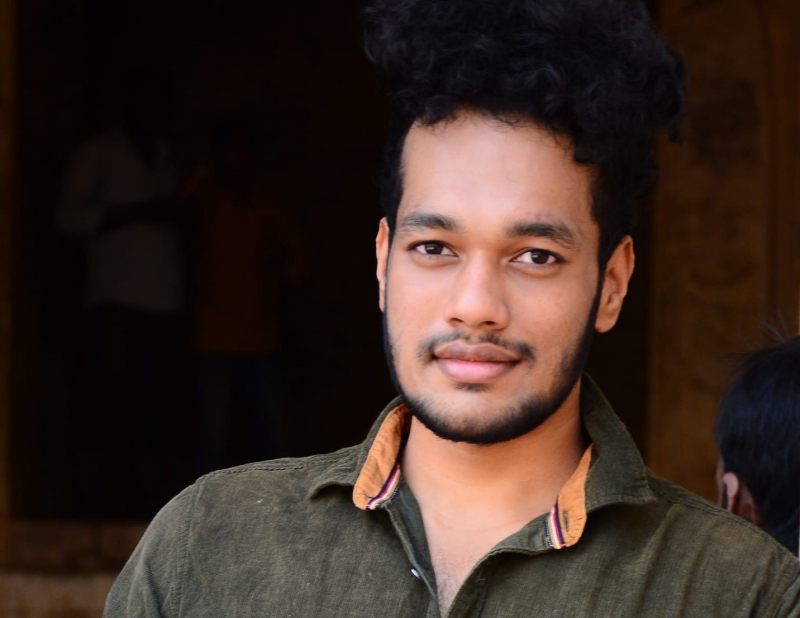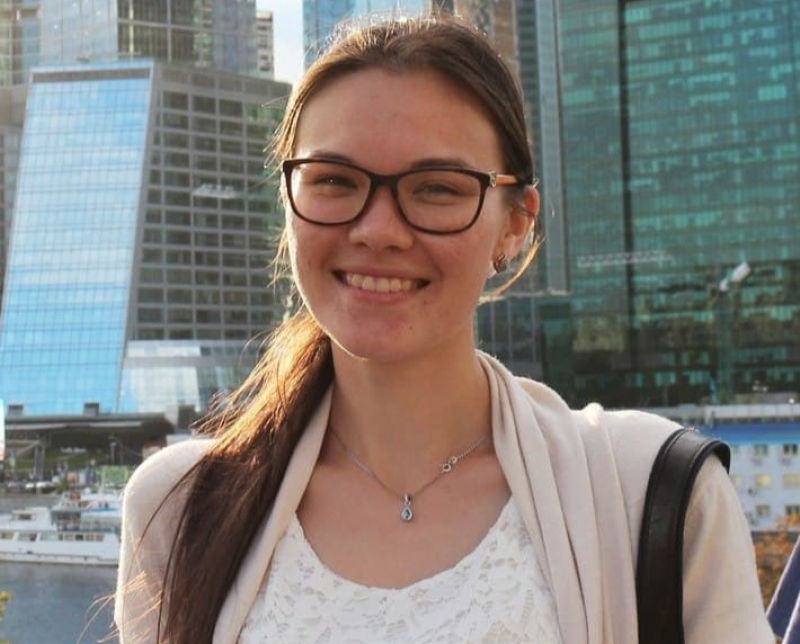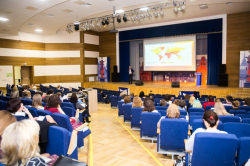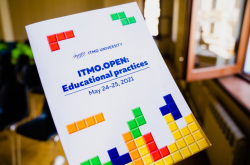The key goal of this event is to exchange ideas and solutions in the field of teaching, education, and communication technologies. Each year, representatives of universities, experts, researchers of educational processes, and all those interested in scientific, engineering, and technological aspects of education gather at the ICRES. In 2021, the conference took place offline in Antalya, Turkey but speakers could also make presentations remotely. Representatives of more than 22 countries took part in the event.
Sofia Sorokina and Pasala Krishna Chaitanya, Master’s students at the Faculty of Digital Transformation’s Big Data and Machine Learning program presented results of their research on quality assessment of online classes in Zoom. They’ve been working on this project since the beginning of the academic year in September 2020. The concept was inspired by the classes being moved online.
“This was a very important problem that affected and interested all of us. When we started to study remotely, we had lots of concerns regarding the quality of such a form of education. On the other hand, moving online allowed us to collect lots of data for our research. But of course, the main stimulus for us was the attempt to change the quality of online learning for the better,” says Sofia Sorokina, Master’s student at the Faculty of Digital Transformation and an engineer at the Cognitive Non-Verbality Laboratory at the National Center for Cognitive Research.

The project is a large-scale study of the connection between teacher’s behavior during online classes and the level of students’ satisfaction and grades. Non-verbal features, such as gestures, posture, intonation, pace and volume of speech, pauses, and visual contact were subject to the research.
“We have detected a connection between non-verbal parameters and the way students perceive information during classes. We have used pre-trained cascade classifiers to detect the gestures and postures from the webinars/ classes from MIT, Harvard University, Stanford University, ITMO and other prestigious institutions.” explains Pasala Krishna Chaitanya, Master’s student at the Faculty of Digital Transformation.
The level of student satisfaction was collected from online ratings given to webinars/classes by the attendees. By comparing the results with outputs of video processing, the authors concluded that during online classes, gestures, appearance, and posture of a lecturer don’t matter that much, as most of the class (about 70%) uses a shared screen with slides and other materials. Pace and volume of speech are also not that important, as students can adjust them themselves or watch the recording at a higher speed. What actually matters is intonation – the researchers have detected a very obvious correlation with this factor.
“Initially, we worked on another project, as part of which we attempted to create an extension for Zoom that would analyze non-verbal features of speakers. For this, we had to design a model that would extract the data we need from videos. Then we realized that this idea could be used for analytical mining that would be beneficial for online learning at ITMO University,” says Pasala Krishna Chaitanya.

The authors say that research isn’t finalized yet. In the future, it will not only be improved but also scaled up and applied in other fields:
“We will certainly work on our research further and add more features to it. We have ideas of how to apply our results in other fields. Zoom is now used for many purposes, for example, for negotiation and job interviews. So we’ll try to scale up our project to fit these needs as well. We’ll continue working in education, too, perhaps we’ll compile a list of recommendations for ITMO lecturers,” comments Sofia Sorokina.
Research is a part of the project implemented as part of the contest for research projects among Master’s and PhD students. This project has to do not only with the assessment of online teaching but also with recognition technologies for verbal and non-verbal features.

“By conducting this research and achieving great results, our students have made a big impact on our common project on the creation of a web service that would allows us to detect various features of online classes: the quality of slides, interpretation of non-verbal parameters, duration of a class, and opinions of students,” says Adelina Ismagilova, head of the contest for research projects among Master’s and PhD students, a Master’s student at the Faculty of Infocommunication Technologies, and an engineer at the Cognitive Non-Verbality Laboratory at the National Center for Cognitive Research.
However, there is much more to this project: developed models and algorithms for detection of emotions, mood, intonation, behavior in general, and other non-verbal features, might be used by HR managers at job interviews. Such a service is also in development at ITMO University’s Cognitive Non-Verbality Laboratory.





